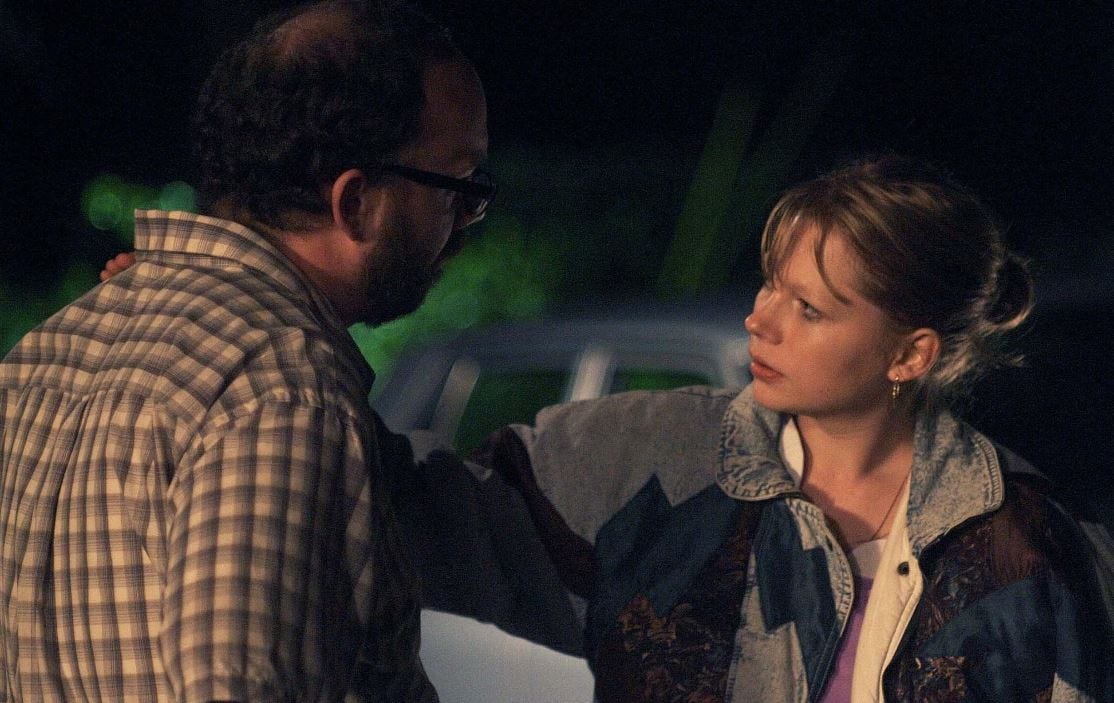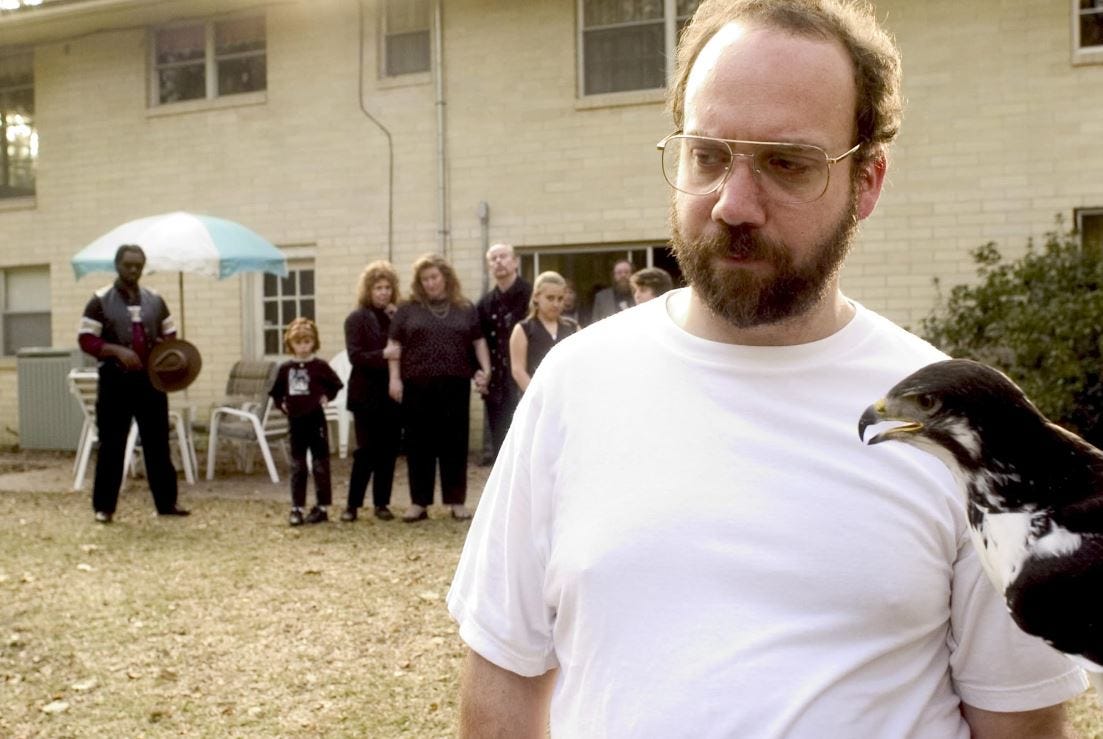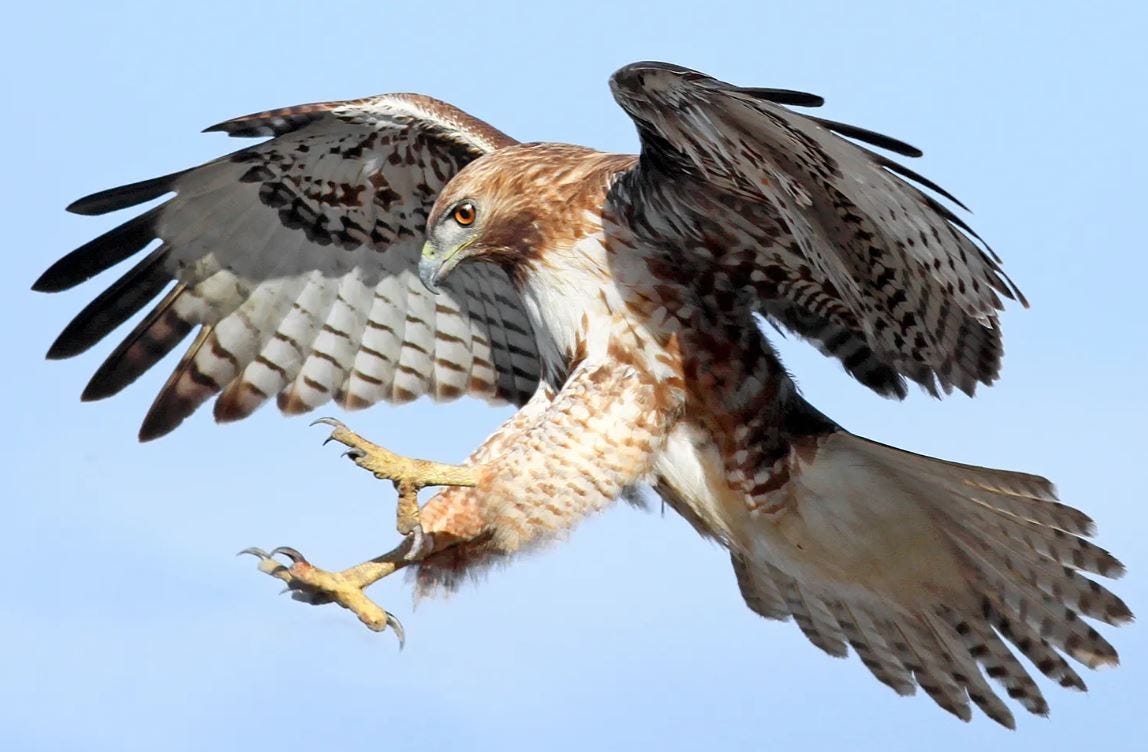The Hawk is Dying
[By Tom Edgemon]
“In this life, it’s possible for a man to go his whole life without knowing whether he’s a coward or not.”
This is primarily about the movie, as the book it’s based on is prohibitively expensive, and has been for many years (I sold my copy four years ago for $150, and you can now regularly pay $250 or more). Luckily, the movie is very faithful to its source material.
Harry Crews was a prolific novelist, but this was the only movie deal he ever got. The Hawk is Dying (published in 1973, movie release in 2006) was produced on a small budget (in the same town the novel takes place in, actually, which also happens to be my hometown and the city Crews lived in for much of his life) and had a very small release outside of Sundance in New York and Los Angeles. In an interview with Paul Giamatti, who masterfully plays the main character George, the director Julian Goldberger claimed he was a longtime Crews fan, and had always desired to make a movie from one of his films. Unfortunately, we’ll never know what Crews thought of the movie, which debuted only six years before his death. A few documentaries were made about Crews (which watch more like senior thesis vertical cellphone interviews), but they, too, are increasingly hard to find without performing illegal digital maneuvers.
George is a middle-aged man who is a successful business owner and lives with his sister and her son Fred. Fred has some form of autism, and only ever speaks a single word at a time, if he even speaks at all. George enjoys Fred’s company because he is nonjudgmental. George can rant or complain or be enthralled, and Fred won’t judge him, unless everyone else in George’s life, who are always quick to give him unwarranted advice.
The movie’s direction feels extremely intentional. There is no complex camera work, many shots are intimate and naturally lit, and there is no soundtrack to speak of. When anger, rage, and pure anguish well up, they are entirely unadulterated. Its most tender and raw moments feel like the viewer has accidentally walked into the wrong room and interrupted a tense and delicate conversation.
When we are introduced to George, he already has a deep fascination with birds of prey. Three minutes into the movie, we learn a hawk has recently died while George attempted to train it, and that he’s already thinking about catching another one.
By all accounts, George is a good person and cares about his friends and family, but birds of prey are all he thinks about. He rants about them to anyone who will listen, and many people who will not. He scoffs at those who are uninterested, and actively seek out the attention of the single friend who encourages his behavior.
As other things in his life begin to go downhill, George becomes all-consumed by his desire to the train the hawk, going so far as to refuse food and sleep until the hawk itself eats. George begins to drive with the hawk in his truck and take it everywhere - including funeral homes.
Everyone, (save for a Psych major at the local university) even those who know him best, think George has thoroughly gone off the deep end. At no point does anyone sincerely ask him why he so feverishly attempts to train wild predatory birds. To them, there could be no sane answer for such a thing. We come to understand that George does it because, in a milquetoast world of vague supposition, complacency, and societal infatuation with agreeableness, a man must sometime pit his wits against a wild thing he has no true control over. A man must have a more concrete way of learning about himself. In lieu of wars to fight or mountains to climb, a man must have some sort of challenging adventure to test his mettle against.
We learn during a riveting monologue towards the end of the movie why George has such reverence for birds of prey, and why mastering one is so deeply meaningful to him. (I won’t spoil it; you cannot find this clip on the internet. You’ll have to watch the entire movie).
Eventually, as crises settle down, George manages to train the hawk to a degree, and all seems to be right in the world - or at least make more sense. Training the hawk was a necessary impediment to better understanding himself before continuing on with middle age in an otherwise loveless and generic life. But George knows that such a majestic animal deserved to be free, that captivity steals from that which made it special to begin with. George ultimately makes the decision to release the hawk in a special place, and watches its flight in awe.
The Hawk is Dying can be rented from Amazon Prime for about five bucks, or the DVD can be purchased for less than ten.





